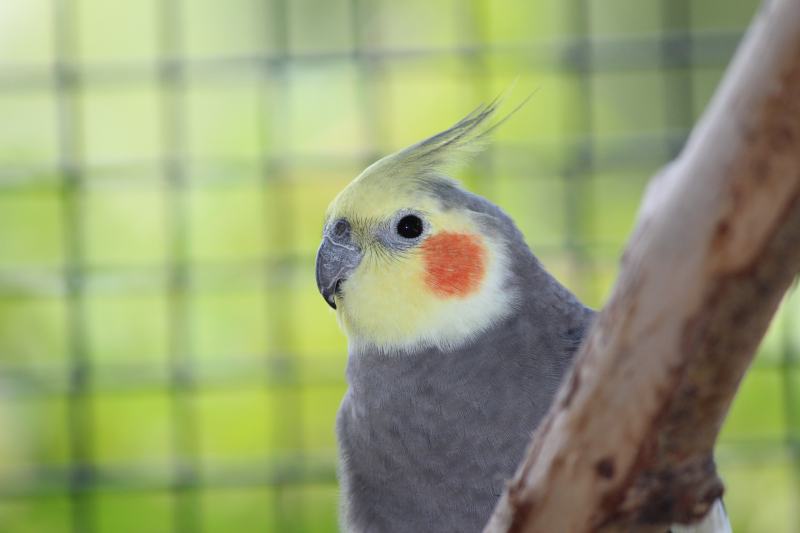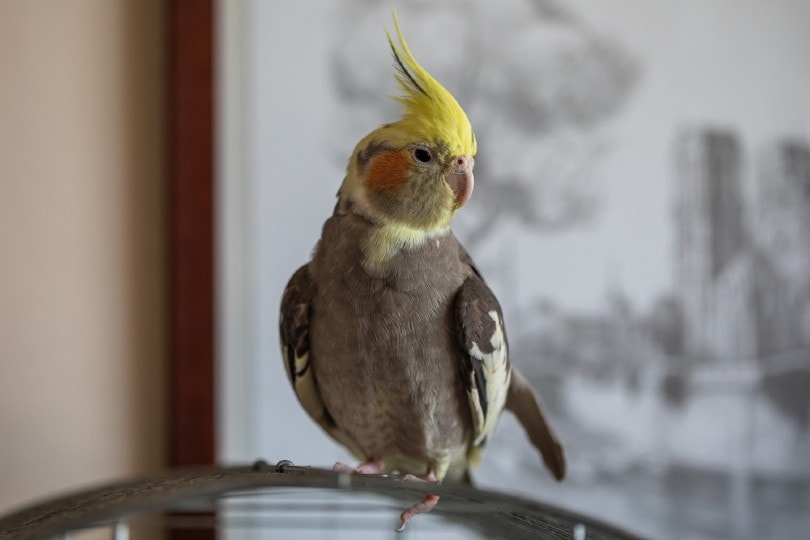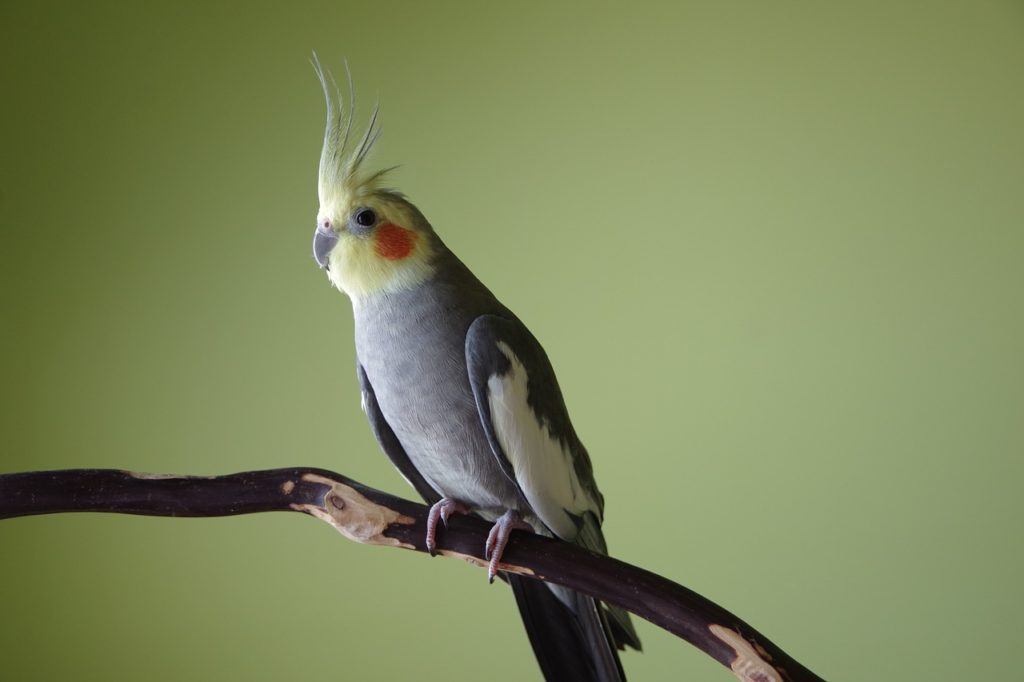Why Do Cockatiels Bob Their Heads: 8 Likely Reasons
Updated on
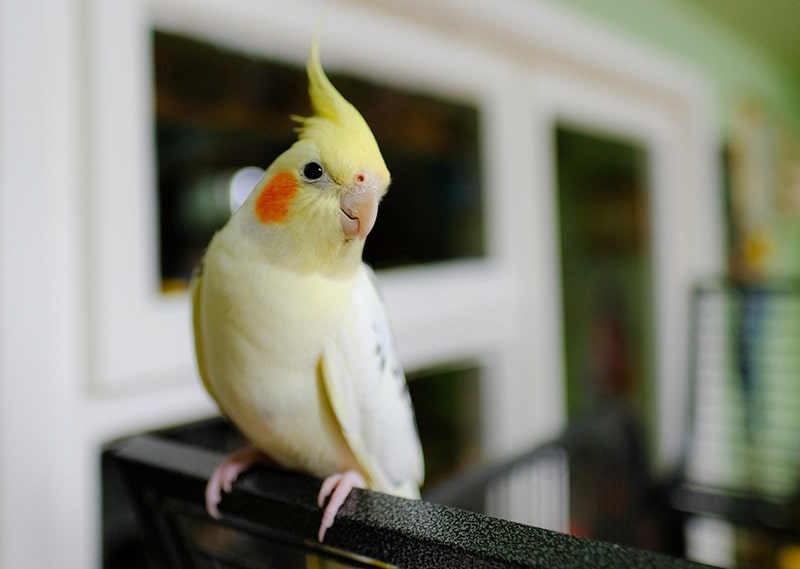
Birds exhibit many strange behaviors that aren’t always easy to identify. Everyone knows that when a cat hisses, it’s angry, or when a dog wags its tail excitedly, it’s happy. It’s not always so black and white for birds, though.
One of the strangest behaviors of birds like cockatiels is head bobbing. They do this for many reasons, most of which are contradictory to one another. For example, they may exhibit this behavior when feeling territorial over their space or feeling the music and showcasing their dance skills.
Read on to find eight likely reasons your cockatiel is head bobbing and to learn how to identify happy bobs from angry bobs.
The 8 Possible Reasons Cockatiels Bob Their Heads
1. Boredom
Animals—and, if we’re honest, humans—can exhibit many strange behaviors when bored, and head bobbing is one of them. You may notice your cockatiel’s bobbing becoming stronger as you approach its cage as it’s trying to catch your attention.
Birds need as much mental and physical stimulation daily as cats or dogs. If it becomes unstimulated, it can develop behaviors to try to tell you that it is not content with its life. Your bird needs a lot of interaction with you and plenty of toys in its environment to entertain itself. Ensure it is getting several hours outside of its cage daily.
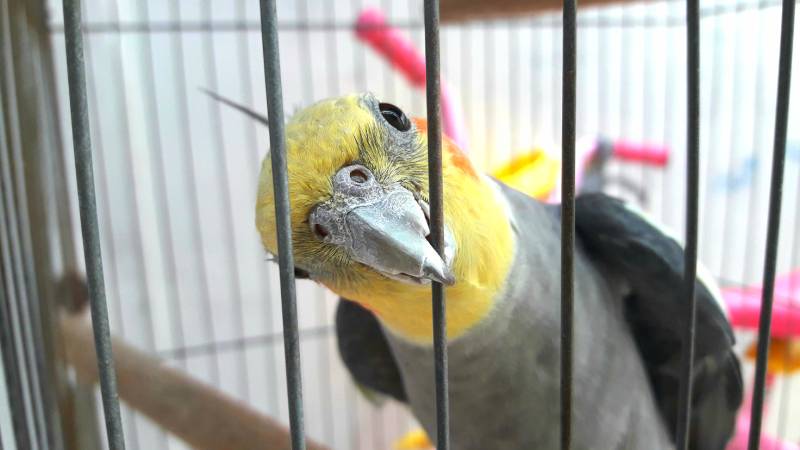
2. Hunger
Head bobbing to indicate hunger is most often seen in very young cockatiels that are still being hand fed. Adults do not exhibit this behavior for this reason. Sometimes babies will also twitch their wings as a way of telling their parents that they’re hungry and in need of a feeding session.
3. Dancing
The most adorable reason your cockatiel is bobbing its head is that it’s showing off its excellent dance moves. Cockatiels love to dance, and many have a great sense of rhythm. So, if your bird is head bobbing whenever you turn on music, chances are it’s getting into the song and dancing. Try playing songs with different beats and tempos to see if your cockatiel’s head bobbing changes speed or cadence as the sound of the music does.
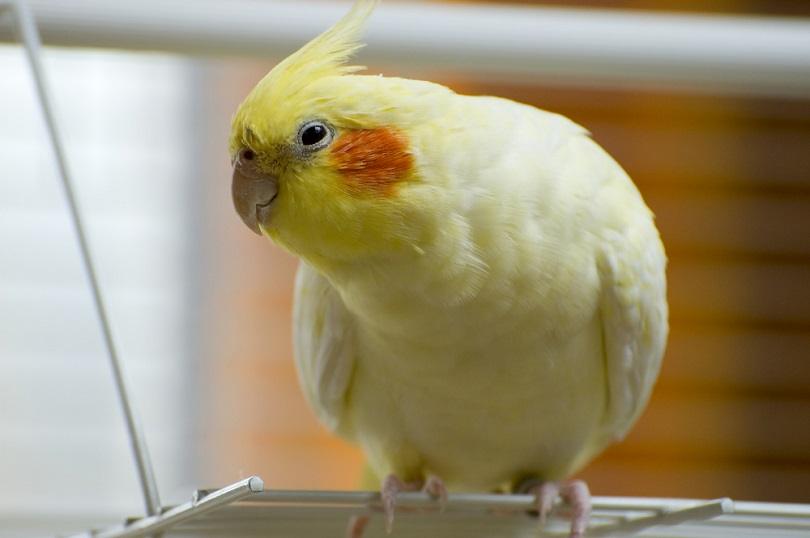
4. Aggression
Head bobbing, paired with aggressive actions like hissing, is one of the ways cockatiels exhibit aggressive behaviors. Head bobbing is often a form of territorial aggression that cockatiels will use to warn other birds that they’re stepping into their territory and need to back off. Your bird may even exhibit this behavior in your direction if the two of you aren’t yet bonded and you’re pushing your boundaries.
5. Happy
Many birds, including cockatiels, bob their heads when happy or excited. Happy head bobbing is typically accompanied by other signs of contentment, including chirping, whistling, or feather fluffing. Your cockatiel may bob its head when it sees you enter the room or when you have a snuggle session to tell you how content and at ease it feels.
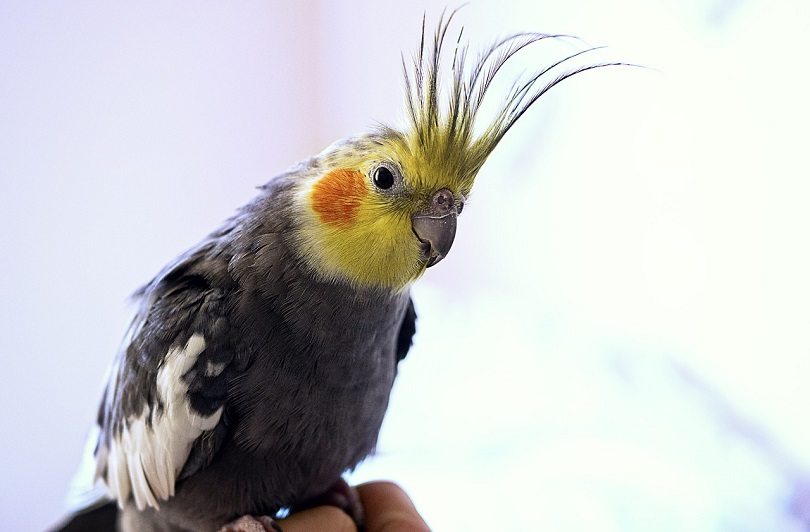
6. Looking for a Mate
Cockatiels are a monogamous species, meaning they form incredibly strong bonds with their partners and mate for life. But before your cockatiel can think about spending its entire life with another bird, it must find a mate.
Sometimes male cockatiels perform elaborate dances, including head bobbing when looking for a partner. This is their way of showing off in front of another bird to try and get its attention. In addition, you may notice your cockatiel exhibiting other behaviors to try to attract a partner, including flashing its feathers and making flirty sounds.
7. Regurgitation
Sometimes cockatiels will head bob before they begin regurgitating. As gross as this sounds, regurgitation is a normal behavior in adult cockatiels that involves bringing up partly digested food from its crop to feed its mates or babies. This behavior is often seen in bonded pairs of birds; however, some cockatiels will connect so deeply with their humans that they will try to regurgitate food for them, too. This is the ultimate sign of affection, as your bird is telling you that it cares for you so much it’s willing to sacrifice its food for you.
Please note that despite how sweet it is for your cockatiel to be regurgitating its food for you, it could mean it looks to you as a mate if it does this repeatedly. This can cause your bird to be aggressive or jealous toward the other humans or birds in your home. Discourage this behavior by putting your cockatiel back in its cage for a time-out whenever it starts regurgitating for you.

8. Anxiety
A cockatiel that’s bobbing its head rapidly and not making any other sounds or behaviors may be feeling uncomfortable or anxious. This is the least likely reason for your bird’s head bobs and would typically be accompanied by other symptoms of stress or anxiety, like screaming, wing flapping, and straightened crest feathers.
Final Thoughts
Head bobbing is a normal behavior that cockatiels engage in for many different reasons. Unfortunately, many of these potential reasons are contradicting, which can make determining why your bird is exhibiting such behavior challenging. Thankfully, you can use other clues that your cockatiel is giving you to try to pin down its feelings. If it’s chirping away happily and head bobbing, it’s likely dancing or excited. If its head bobbing is accompanied by a completely flat crest, it could be angry or territorial. Use the other clues your cockatiel is giving to determine what it’s trying to tell you.
Featured Image Credit: Nick Beer, Shutterstock

